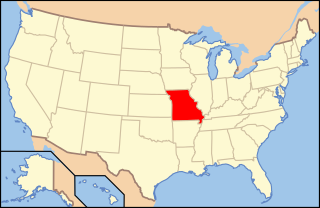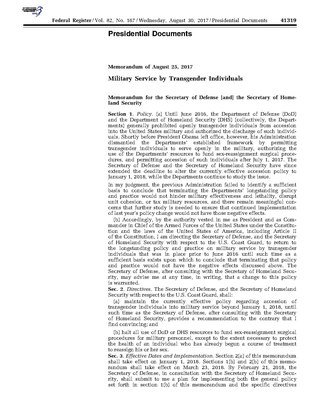The Standards of Care for the Health of Transgender and Gender Diverse People (SOC) is an international clinical protocol by the World Professional Association for Transgender Health (WPATH) outlining the recommended assessment and treatment for transgender and gender-diverse individuals across the lifespan including social, hormonal, or surgical transition. It often influences clinicians' decisions regarding patients' treatment. While other standards, protocols, and guidelines exist – especially outside the United States – the WPATH SOC is the most widespread protocol used by professionals working with transgender or gender-variant people.

Executive Order 11246 was an executive order of the Article II branch of the U.S. Federal government, in place from 1965 to 2025, specifying non-discriminatory practices and affirmative action in federal government hiring and employment.

Lesbian, gay, bisexual, transgender, and queer (LGBTQ) people in the United States may face legal challenges not experienced by non-LGBTQ residents, with civil protections widely varying by state. While the rights of lesbian, gay and bisexual people remain among the most advanced in the world, the rights of transgender and intersex people have been significantly eroded since the beginning of the second Trump presidency, with public opinion and jurisprudence changing significantly since the late 1980s.
In the United States, the rights of transgender people vary considerably by jurisdiction. In recent decades, there was an expansion of federal, state, and local laws and rulings to protect transgender Americans until 2025; however, many rights remain unprotected, and some rights are being eroded. Since 2020, there has been a national movement by conservative and right-wing politicians and organizations against transgender rights. There has been a steady increase in the number of anti-transgender bills introduced each year, especially in Republican-led states.

Lesbian, gay, bisexual, transgender, and queer (LGBTQ) people in the U.S. state of Missouri may experience some legal challenges that non-LGBTQ residents do not. Same-sex sexual activity is legal in Missouri, in accordance with 2003's Lawrence v. Texas decision. In 2006, Missouri codified the legality of same-sex sexual activity into its statutory law.

Lesbian, gay, bisexual, transgender, and queer (LGBTQ) people in the U.S. state of Montana may face some legal challenges not experienced by non-LGBTQ residents. Same-sex sexual activity has been legal in Montana since 1997. Same-sex couples and families headed by same-sex couples are eligible for all of the protections available to opposite-sex married couples, as same-sex marriage has been recognized since November 2014. State statutes do not address discrimination on the basis of sexual orientation and gender identity; however, the U.S. Supreme Court's ruling in Bostock v. Clayton County established that employment discrimination against LGBTQ people is illegal under federal law. A number of cities also provide protections in housing and public accommodations.

Lesbian, gay, bisexual, transgender, and queer (LGBTQ) people in the U.S. state of Oklahoma face legal challenges not experienced by non-LGBTQ residents. Same-sex sexual activity is legal in Oklahoma as a result of the U.S. Supreme Court decision in Lawrence v. Texas, although the state legislature has not repealed its sodomy laws. Both same-sex marriage and adoption by same-sex couples have been permitted since October 2014. State statutes do not prohibit discrimination based on sexual orientation or gender identity; however, the U.S. Supreme Court's ruling in Bostock v. Clayton County established that employment discrimination against LGBTQ people is illegal. This practice may still continue, as Oklahoma is an at-will employment state and it is still legal to fire an employee without requiring the employer to disclose any reason.
The legal and regulatory history of transgender and transsexual people in the United States begins in the 1960s. Such legislation covers federal, state, municipal, and local levels, as well as military justice. It reflects broader societal attitudes which have shifted significantly over time and have impacted legislative and judicial outcomes.

Transgender people have served or sought to serve in the United States military throughout its history. Since January 25, 2021, transgender individuals have been allowed to openly serve and enlist in the U.S. military; however, on January 20, 2025, President Donald Trump signed an executive order revoking the Biden-era policy that allowed transgender individuals to serve openly in the U.S. military, effectively paving the way for a renewed ban. If enacted, the ban could result in the removal of thousands of transgender service members.

The Presidential Memorandum on Military Service by Transgender Individuals, officially the Presidential Memorandum for the Secretary of Defense and the Secretary of Homeland Security, is the 27th presidential memorandum signed by U.S. President Donald Trump on August 25, 2017. The intent was to prevent transgender people from serving in the U.S. military, on the basis that they would be a financial burden due to sex reassignment procedures and associated costs. Federal courts delayed the implementation of this rule by issuing four injunctions. On January 22, 2019, however, the U.S. Supreme Court allowed the Trump administration's ban to take effect.
This is a list of notable events in the history of LGBTQ rights that took place in the year 2021.
The social policy of the Joe Biden administration is intended to improve racial equity, increase access to safe and legal abortions, tighten restrictions on gun sales, among other aims. A number of policies aim to reverse the former policies of President Donald Trump, including the "Muslim" travel ban and loosened anti-discriminatory policies relating to LGBT people.

Arkansas House Bill 1570, also known as the Save Adolescents From Experimentation (SAFE) Act or Act 626, is a 2021 law in the state of Arkansas that bans gender-affirming medical procedures for transgender people under 18, including puberty blockers, hormone therapy, and sex reassignment surgery. The law also bans the use of public funds for and prohibits insurance from covering gender transition procedures, while doctors who provide treatment in violation of the ban can be sued for damages or professionally sanctioned. The measure makes Arkansas the first U.S. state to make gender-affirming medical care illegal.

Transphobia in the United States has changed over time. Understanding and acceptance of transgender people have both decreased and increased during the last few decades depending on the details of the issues which have been facing the public. Various governmental bodies in the United States have enacted anti-transgender legislation. Social issues in the United States also reveal a level of transphobia. Because of transphobia, transgender people in the U.S. face increased levels of violence and intimidation. Cisgender people can also be affected by transphobia.

Chloe Cole is an American activist who opposes gender-affirming care for minors and supports bans on such care following her own detransition. She has appeared with conservative politicians and in the media, supporting and advocating for such bans. Cole says that she began transitioning at 12, having undergone treatment which included puberty blockers, testosterone, and a double mastectomy at age 15. She began detransitioning at 17 after experiencing hallucinations during an LSD trip, and converted to Christianity.

The 2020s anti-LGBTQ movement in the United States is an ongoing political backlash from social conservatives against LGBTQ movements. It has included legislative proposals of bathroom use restrictions, bans on gender-affirming care, anti-LGBTQ curriculum laws, laws against drag performances, book bans, boycotts, and conspiracy theories around grooming. Between 2018 and 2023, hundreds of anti-LGBTQ laws were considered, with more than one hundred passed into law.
The following is a timeline of the second presidency of Donald Trump during the first quarter of 2025, beginning from his inauguration as the 47th president of the United States on January 20, 2025, to March 31, 2025. For his time as president-elect, see the second presidential transition of Donald Trump; for a detailed account of his first months in office, see First 100 days of the second Donald Trump presidency; for a complete itinerary of his travels, see List of presidential trips made by Donald Trump (2025). To navigate between quarters, see timeline of the Donald Trump presidencies.
Executive Order 14168, titled "Defending Women from Gender Ideology Extremism and Restoring Biological Truth to the Federal Government" is an executive order issued by Donald Trump on January 20, 2025, the day of his second inauguration as president of the United States.
Prioritizing Military Excellence and Readiness is an executive order issued by President Donald Trump on January 27, 2025. It revokes Executive Order 14004 and establishes policies to reinforce military standards related to physical and mental fitness, unit cohesion, and mission effectiveness.











